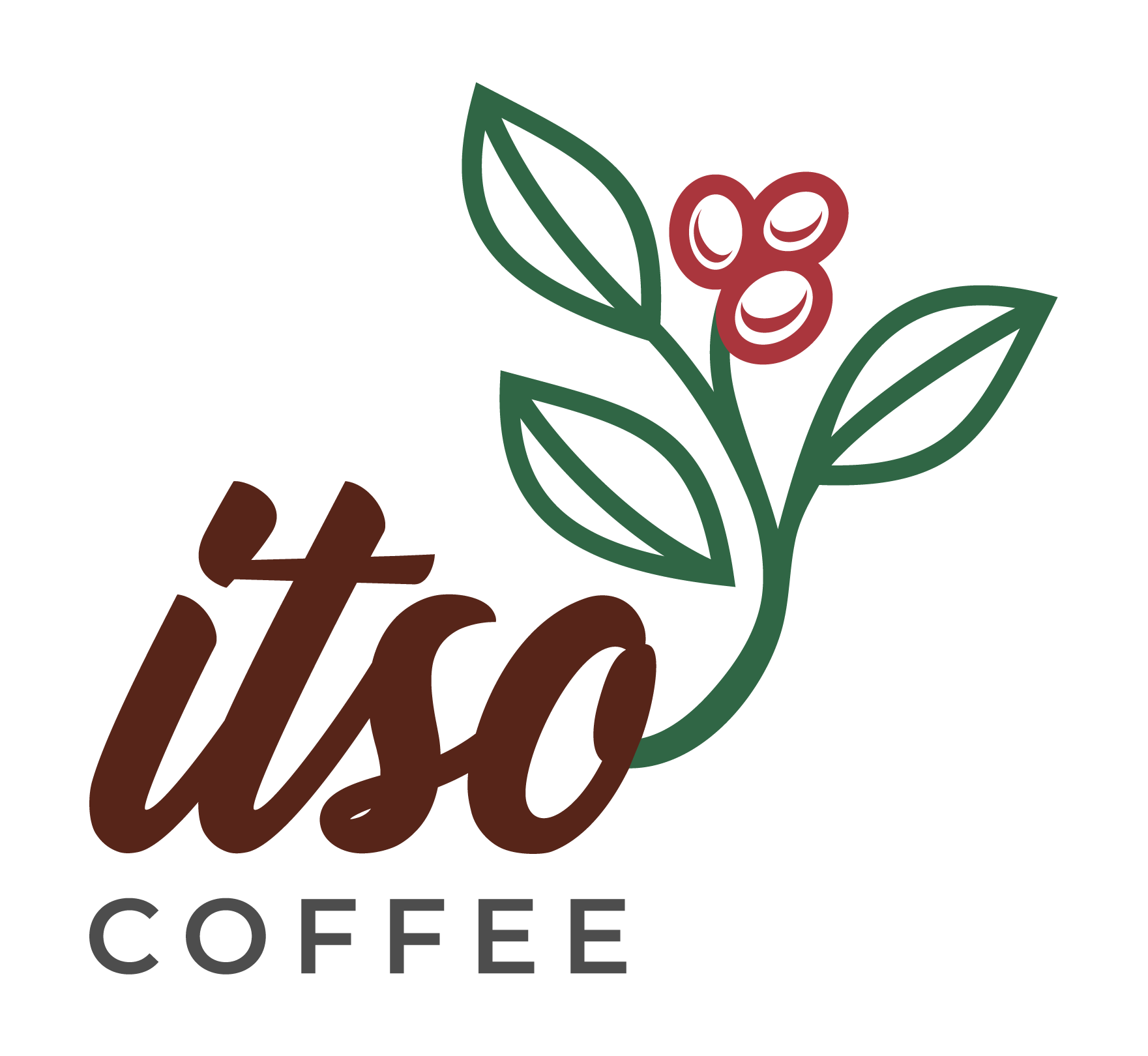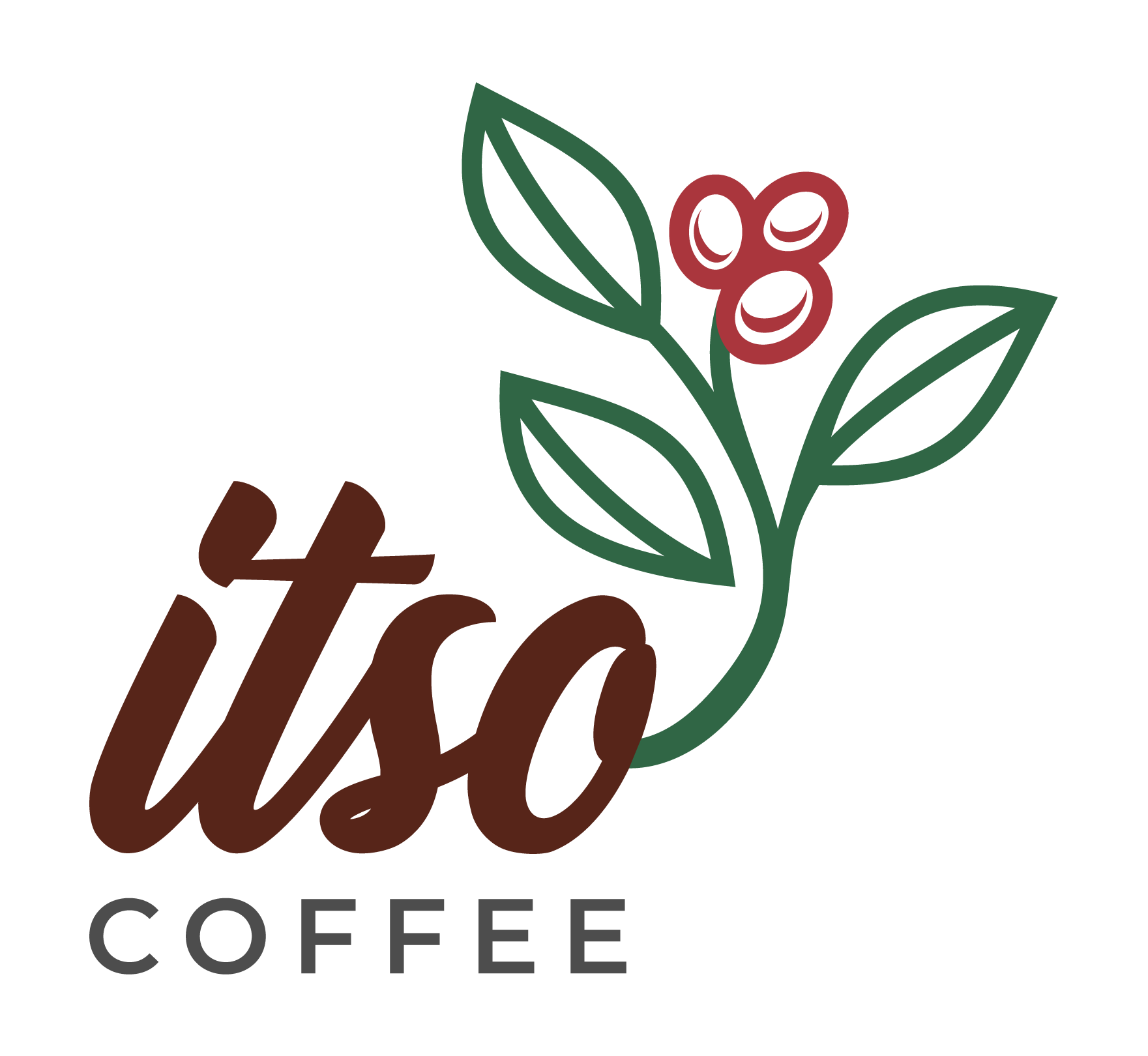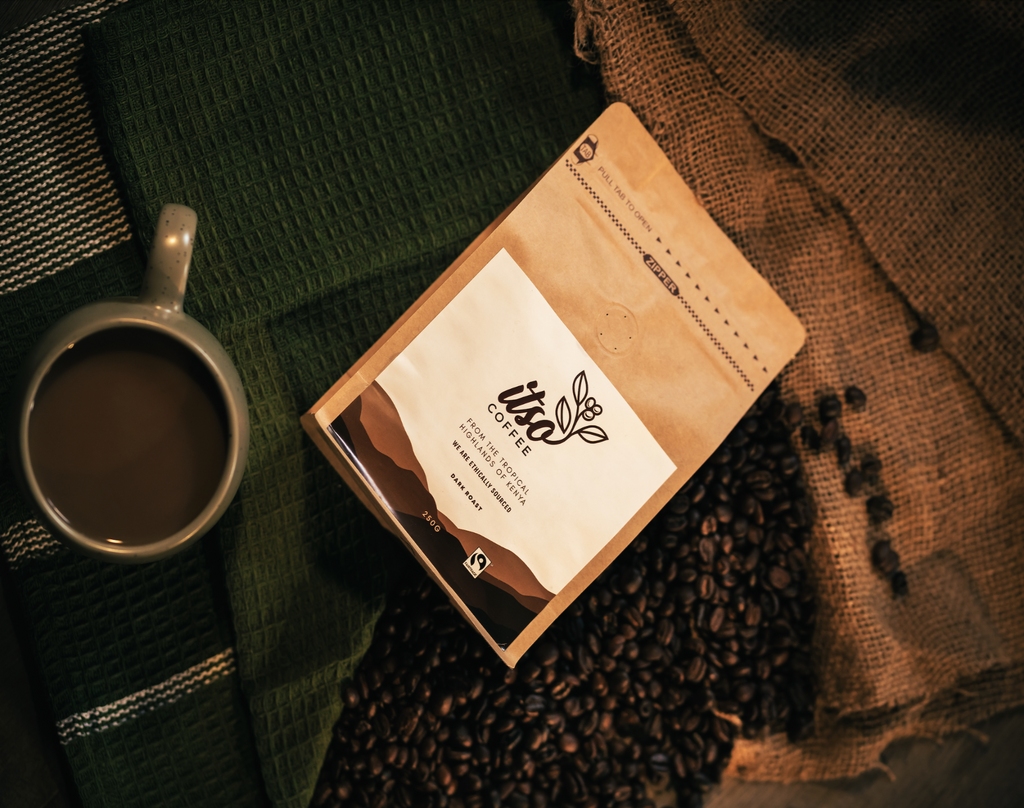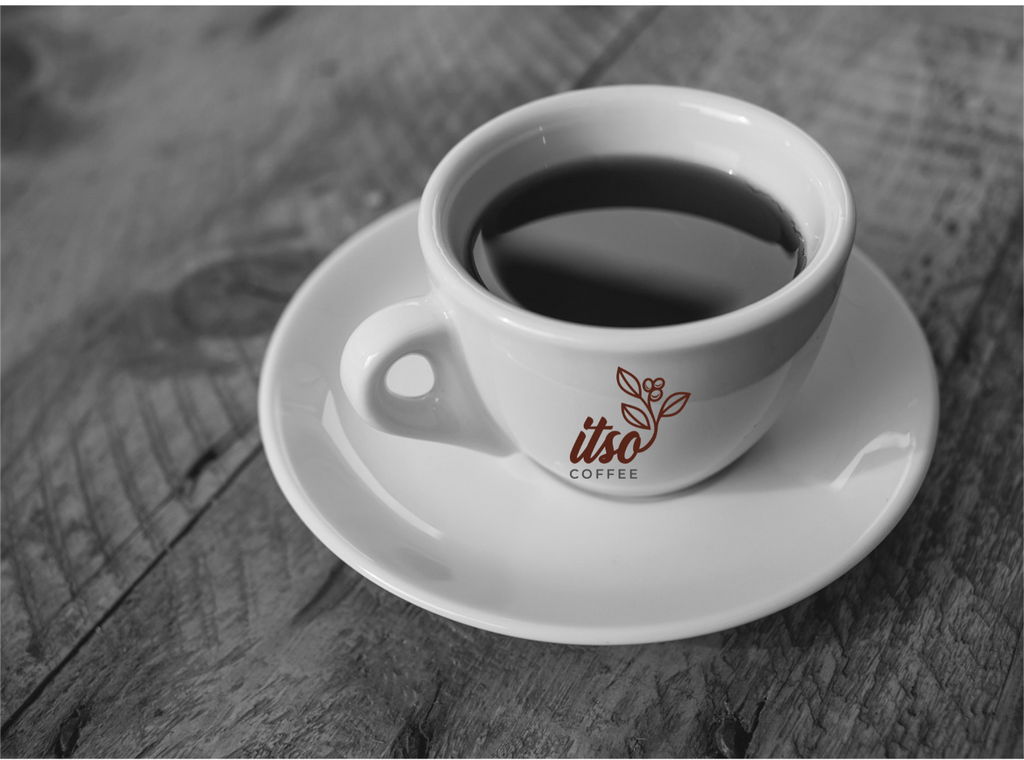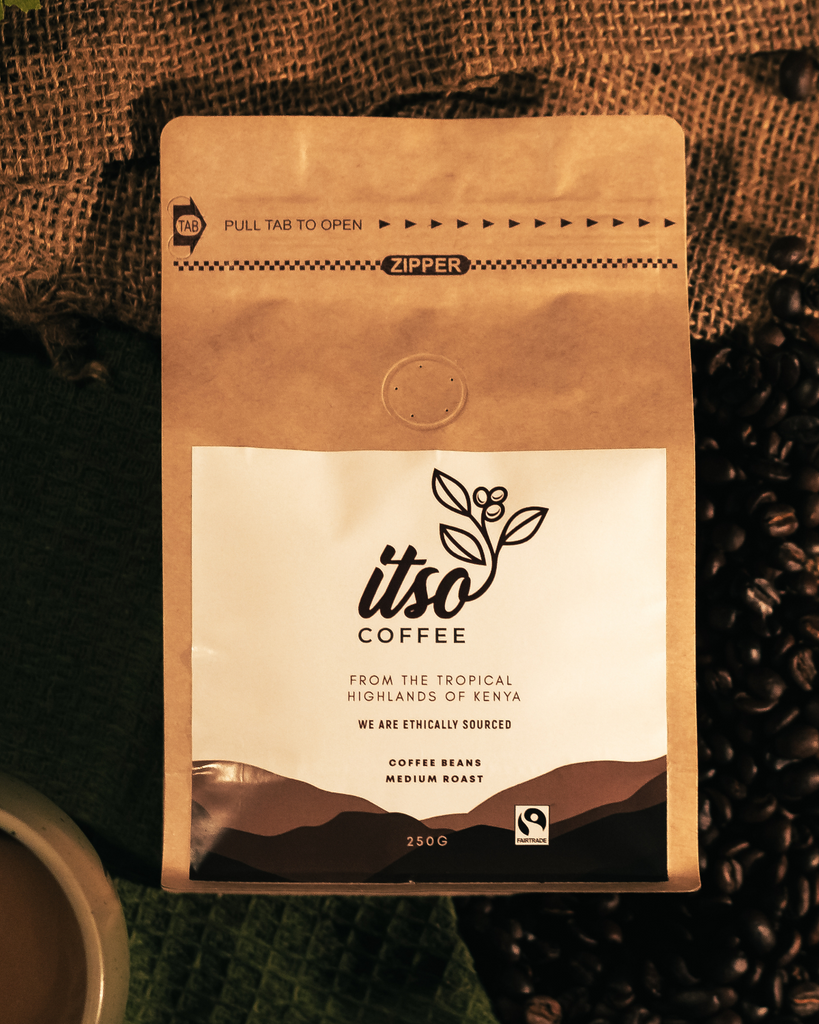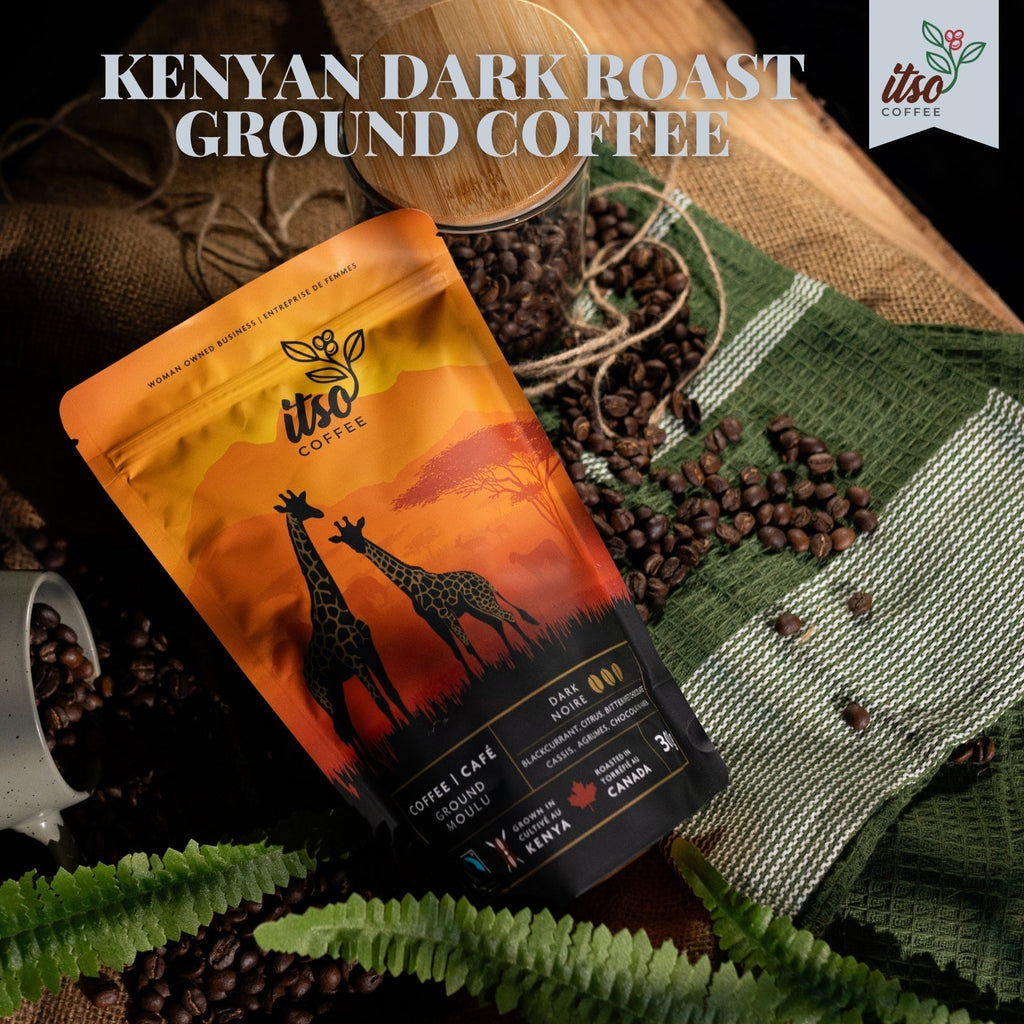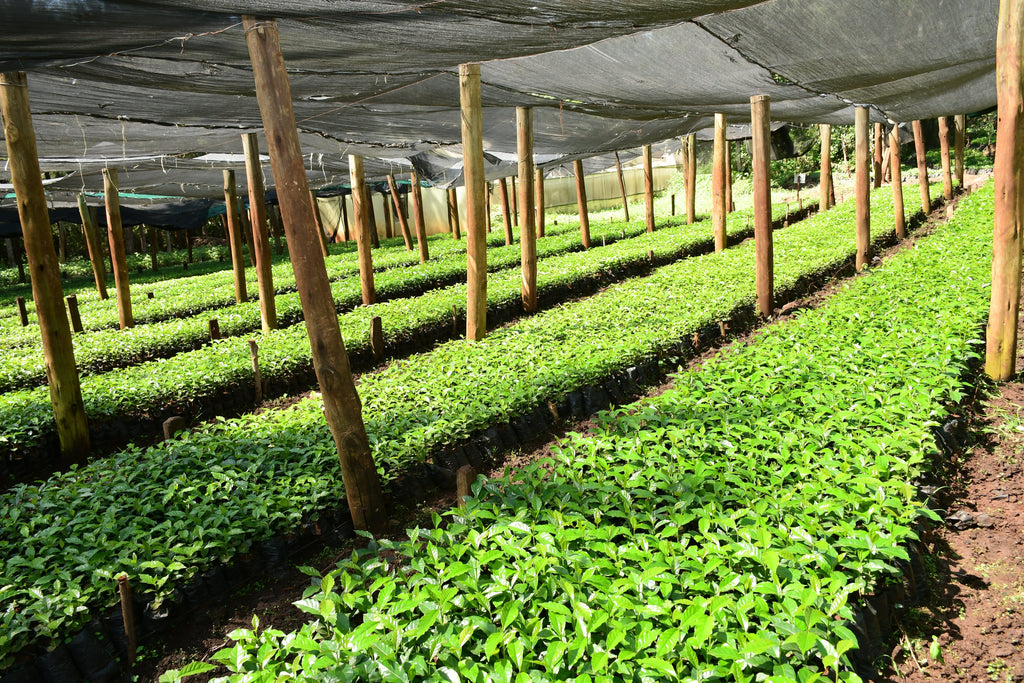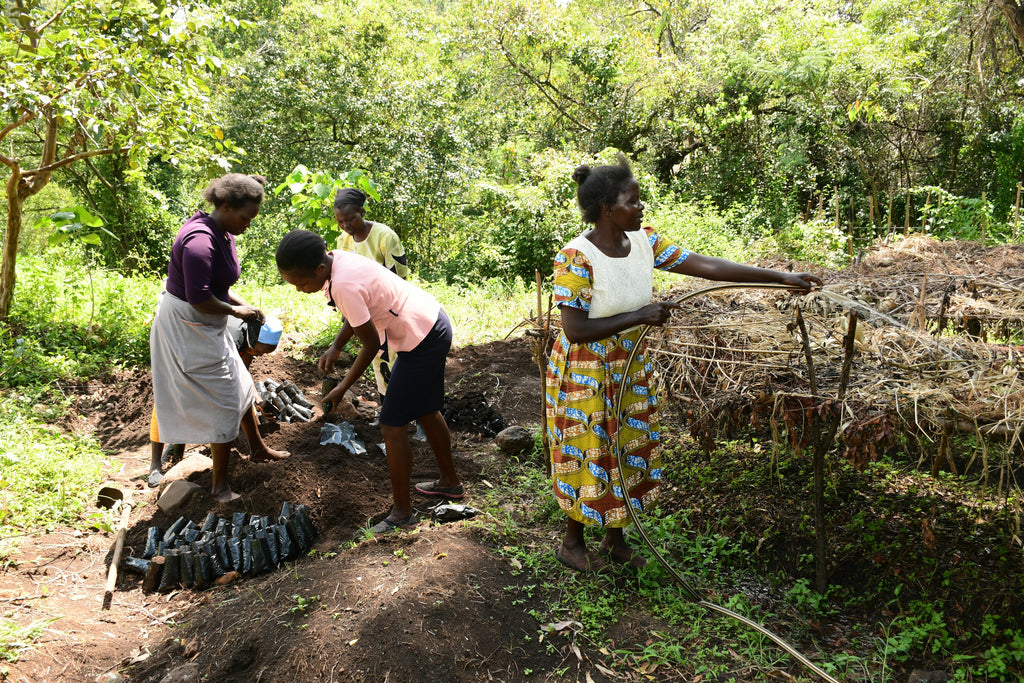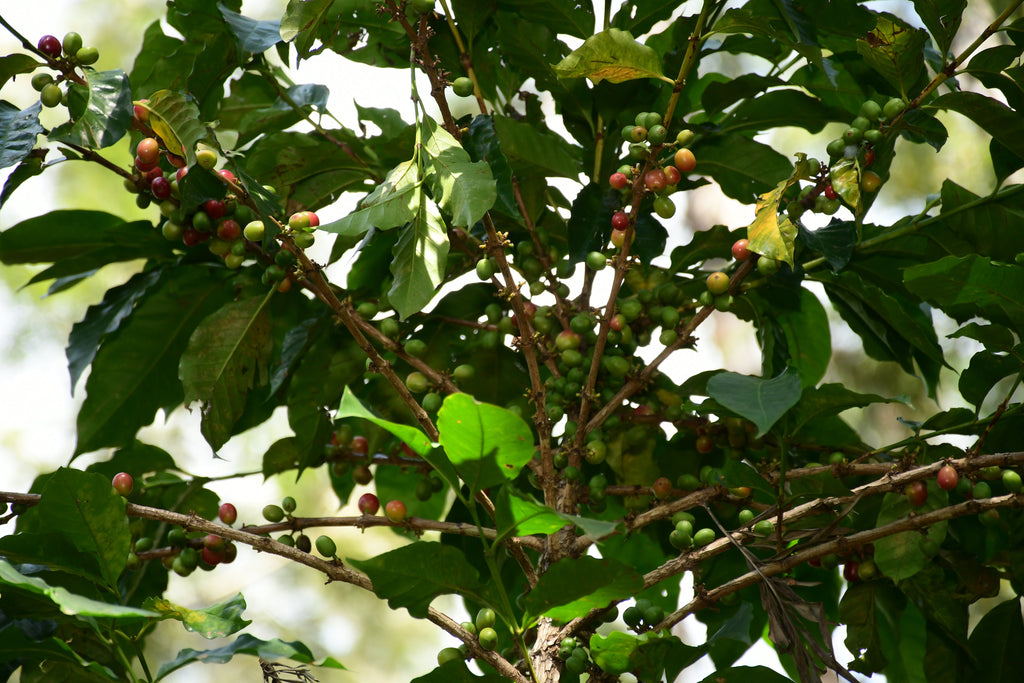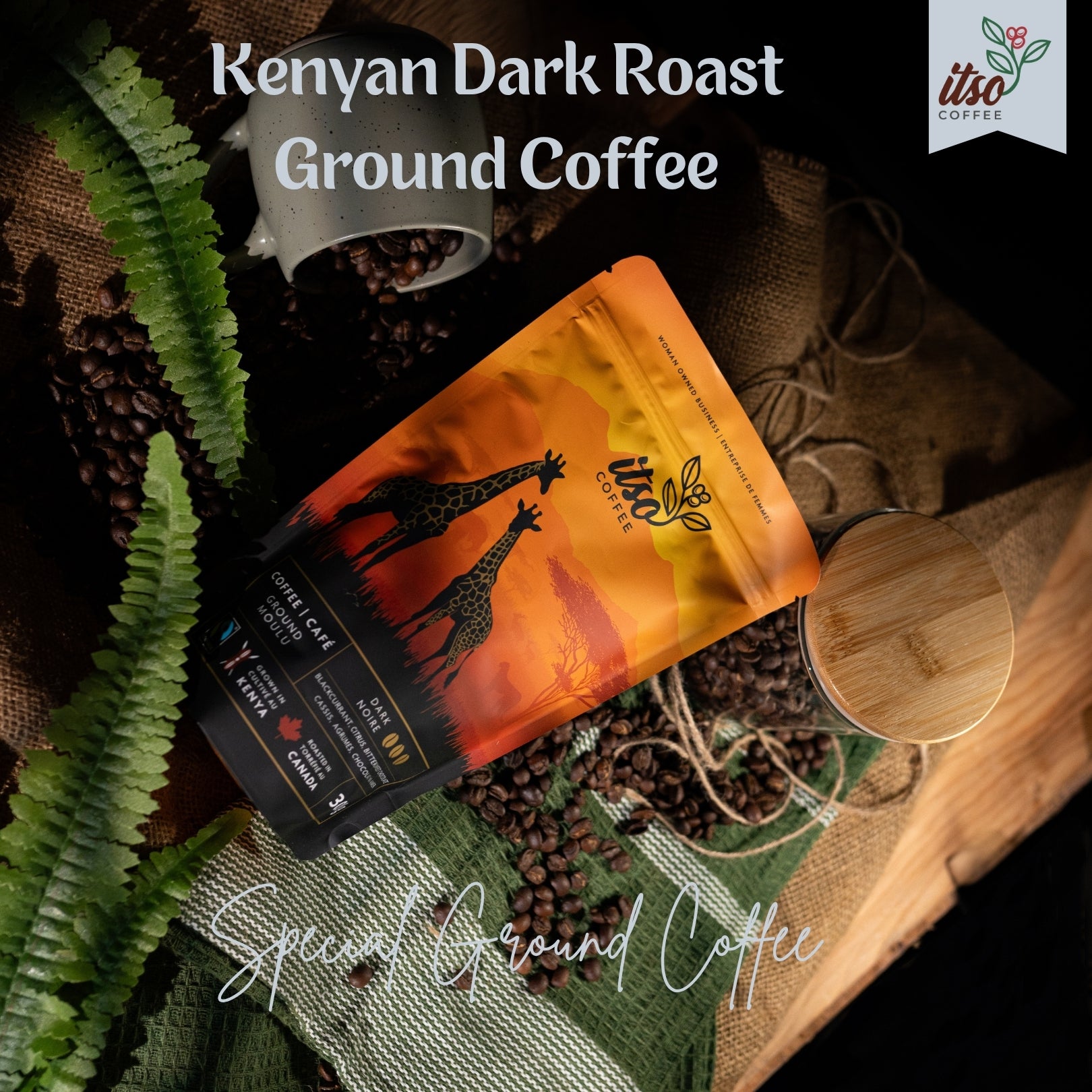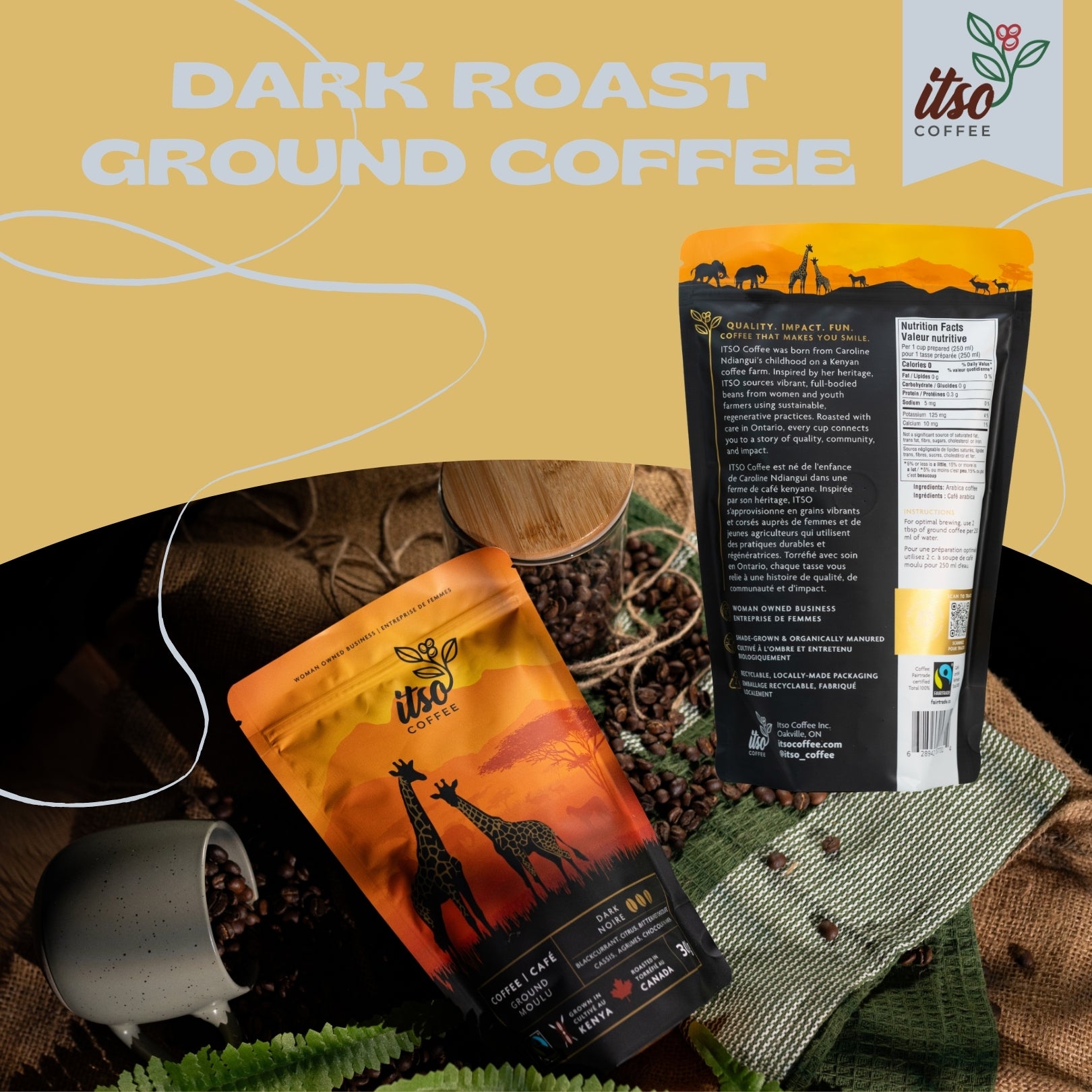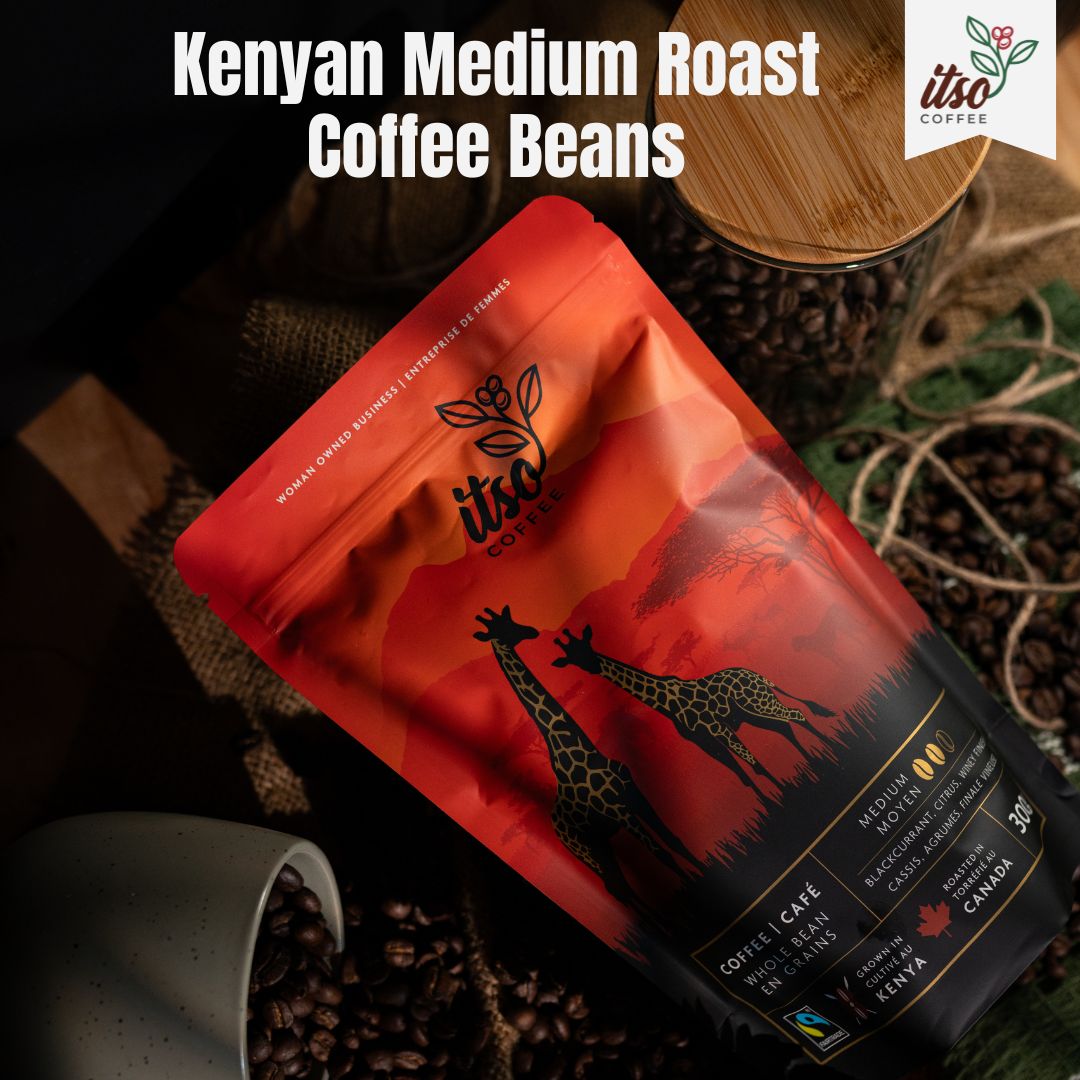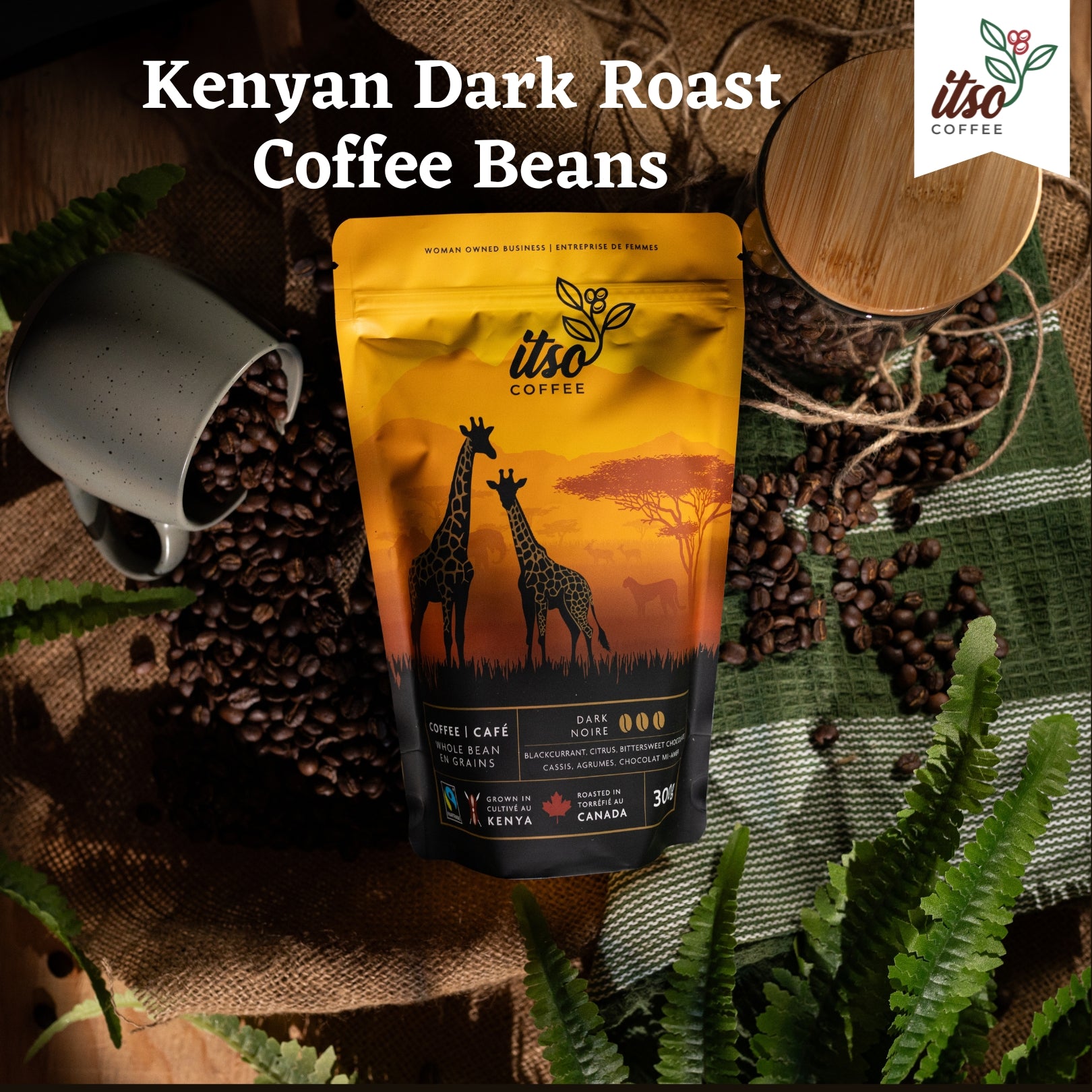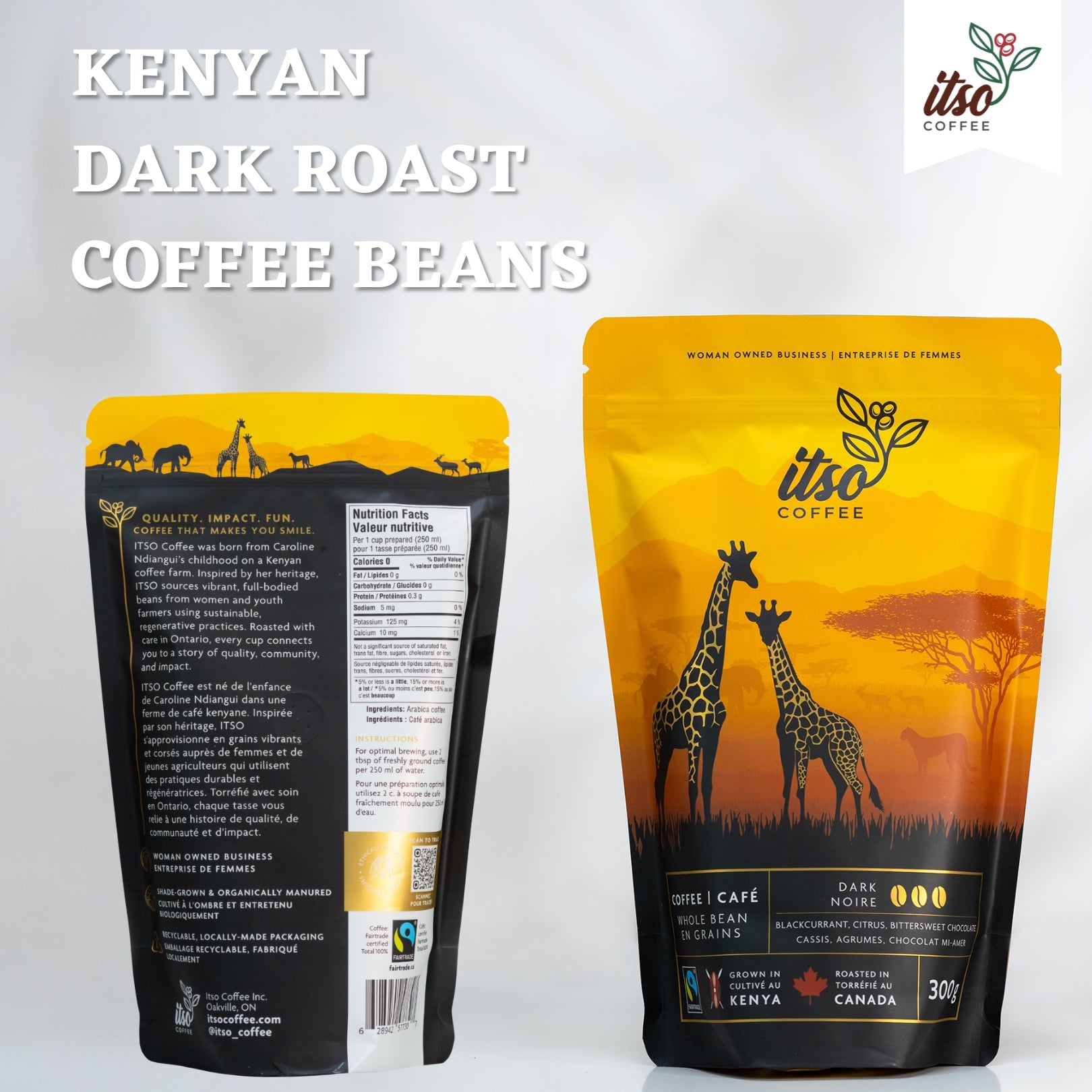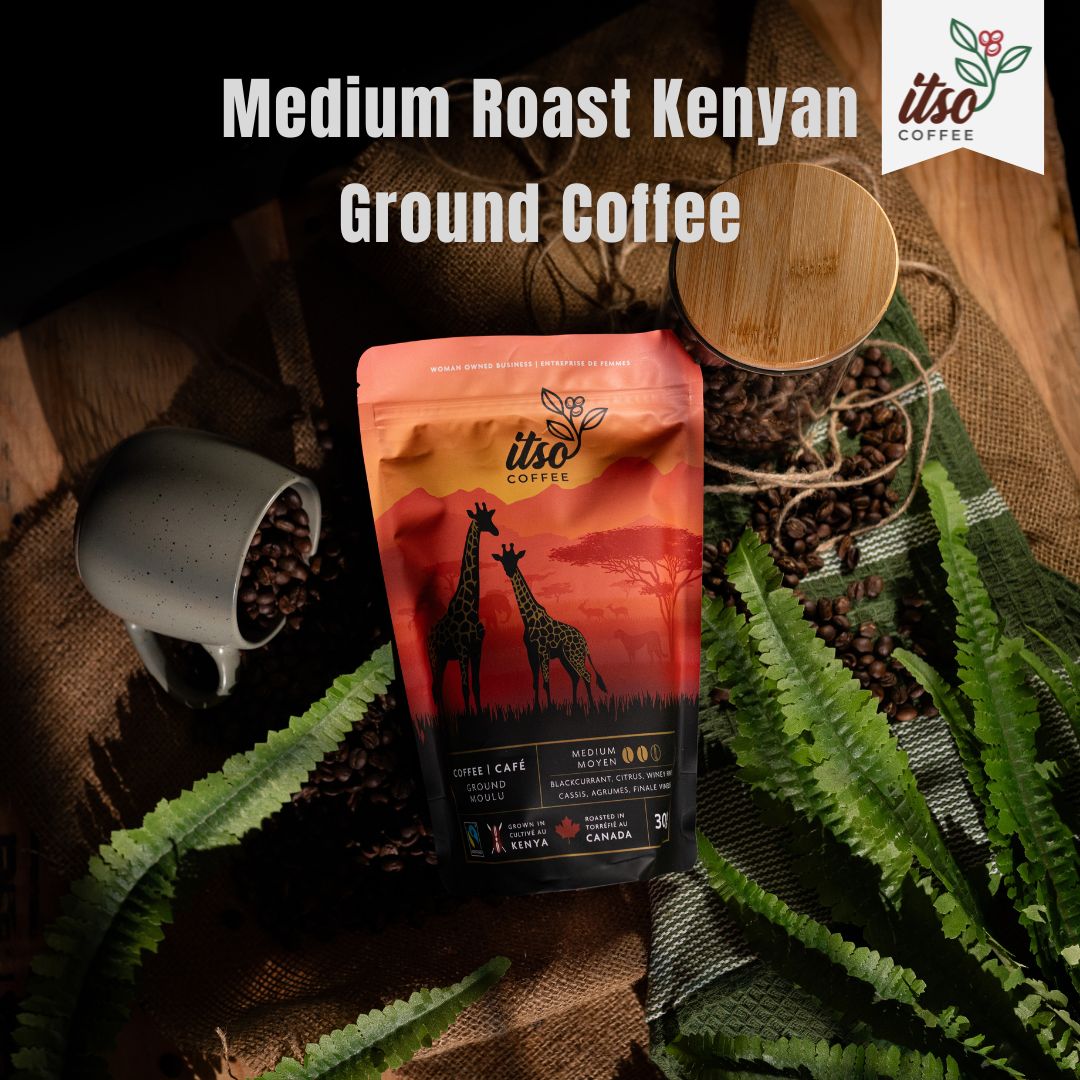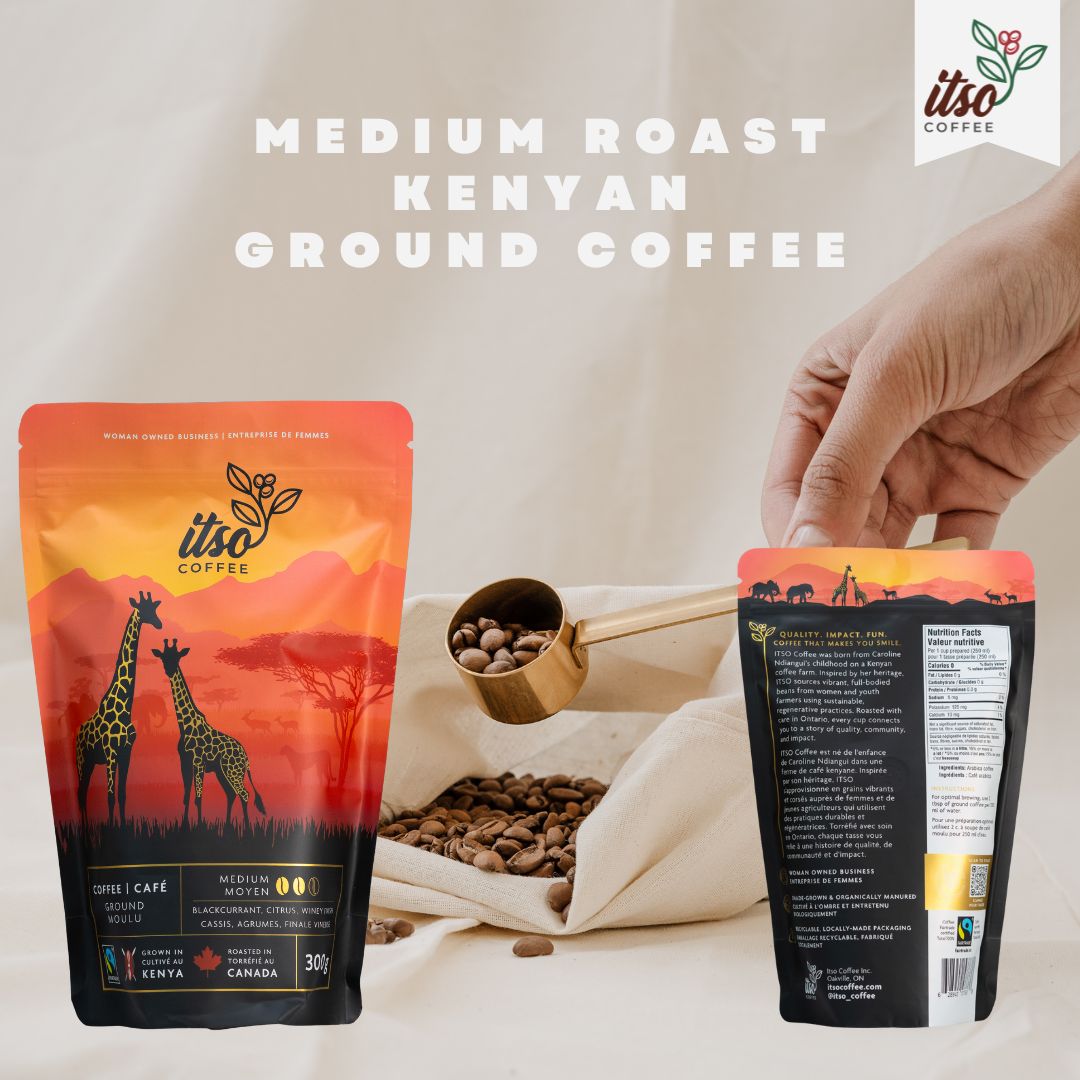
The Story Behind Kenyan Coffee: From Highlands to Your Mug

Introduction
Kenya is one of the world’s most celebrated coffee origins. Its lush highlands, volcanic red soil, and ideal climate make it one of the best regions for cultivating exceptional, single-origin coffee beans.
Coffee farming began in Kenya in the late 19th century and has since become a proud tradition and a vital source of income for tens of thousands of smallholder farmers. Today, brands like ITSO Coffee continue this legacy — sharing Kenya’s finest Fairtrade, women-grown coffee with the world.
The Role of Small Farmers
Most of Kenya’s coffee is produced by small-scale farmers who often grow coffee alongside other crops. These farmers hand-pick only the ripest, red coffee cherries and deliver them to local cooperative processing stations, ensuring consistent quality and flavor.
Behind their hard work is a collective vision — one that empowers rural communities and preserves Kenya’s rich coffee heritage. Many cooperatives now follow Fairtrade and sustainable farming practices, ensuring farmers are paid fairly and that their efforts benefit future generations.

The Journey from Cherry to Bean
Between the farm and your cup, coffee cherries undergo a fascinating journey of transformation. Each step plays a crucial role in defining the coffee’s flavor and character.
- Picking: Only the ripest red cherries are hand-picked for peak quality.
- Pulping: The outer fruit is carefully removed, revealing the precious beans inside.
- Fermentation & Washing: Beans are fermented, then washed to remove the mucilage layer — a signature of Kenya’s washed coffee process.
- Drying: The clean beans are sun-dried on raised beds to preserve their natural brightness and aroma.
- Milling & Grading: Once dry, the parchment layer is removed, and beans are sorted by size and density — with the large, sought-after AA and AB grades known for superior cup quality.
💡 In Kenya, grades like AA and AB refer to bean size and density — indicators of potential quality, though flavor still depends on growing and processing conditions.
What Makes Kenyan Coffee Special

Kenyan coffee is celebrated worldwide for its vibrant acidity, complex fruit notes, and wine-like brightness. Each cup is a unique reflection of Kenya’s climate, altitude, and craftsmanship.
Here’s what gives it that unmistakable signature:
- Distinct Flavor Profile: Expect lively acidity with notes of berries, citrus, or blackcurrant — no two cups are exactly alike.
- High-Altitude Farming: Grown between 1,400 and 2,000 meters above sea level, beans mature slowly, developing richer and more layered flavors.
- Rigorous Grading System: Kenya’s meticulous grading ensures consistency and excellence.
- Washed Processing: The traditional washed method highlights the coffee’s clarity, brightness, and fruit-forward character.
Supporting Women in Coffee Farming

In Kenya, women are at the heart of coffee production — planting, harvesting, sorting, and processing the beans. Yet historically, they’ve received less recognition and fewer resources than their male counterparts.
That’s changing. Across the country, women-owned cooperatives and Fairtrade initiatives are giving women access to training, leadership roles, and fair market opportunities.
By choosing coffee from a women-owned brand like ITSO Coffee, you’re not just enjoying great flavor — you’re supporting programs that uplift families and reinvest profits into education, healthcare, and sustainable farming.
Every purchase helps create a ripple of empowerment that extends far beyond the farm.
From Roasters to Your Mug
Once the green coffee beans reach roasters abroad, they undergo the final stage of their journey: roasting.
Roasting unlocks the beans’ natural aroma, sweetness, and depth, balancing acidity and body to create that signature Kenyan cup.
Roasters experiment with different profiles — light for brightness, medium for balance, and dark for richness — each revealing new layers of complexity. This artistry ensures that what ends up in your mug is nothing short of extraordinary.
Why Choosing Specialty Coffee Matters
“Specialty coffee” isn’t a different species of bean — it’s a standard of excellence. To qualify, coffee must score 80 points or higher on the Specialty Coffee Association (SCA) scale and be cultivated, processed, and roasted with meticulous care.
Choosing specialty-grade, Fairtrade coffee means you’re enjoying better flavor while supporting ethical sourcing, fair pay, and sustainable farming.
It’s a conscious choice — one that respects both people and the planet.
Kenyan Coffee Loved Around the World
From Canada to the United States and beyond, coffee enthusiasts are captivated by Kenya’s distinctive flavors and exceptional quality.
Its lively, fruit-forward notes make it a favorite among specialty roasters and cafés.
As more consumers embrace ethical and transparent sourcing, the global demand for Fairtrade Kenyan coffee continues to rise — helping farmers gain recognition and stability in the international market.

Conclusion
Kenya’s coffee story is still being written. Farmers are adopting eco-friendly practices, improving soil health, and using technology to connect directly with global buyers — ensuring fair prices and recognition for their craftsmanship.
When you choose Kenyan coffee in North America, you’re not just enjoying a world-class cup. You’re investing in a fairer, more sustainable coffee future — one that empowers farmers, uplifts communities, and preserves the heritage of Kenyan coffee for generations to come.
☕ For more updates and stories from our partner farmers, visit our Facebook Page and follow @itsocoffee.
Frequently Asked Questions
1. How is Kenyan coffee different from other origins?
Kenyan coffee is known for its bright acidity, juicy body, and complex fruit flavors. The combination of high altitude, volcanic soil, and expert processing creates its distinctive taste.
2. How can I support women farmers in Kenya?
Buy from Fairtrade-certified and women-owned coffee brands that invest in women’s training, leadership, and financial independence.
3. What does “specialty coffee” mean?
It refers to the highest-quality coffee beans (scoring 80+ points on the SCA scale), cultivated and processed with exceptional care and full traceability.
4. What’s the best way to store Kenyan coffee beans?
Keep beans in an airtight container in a cool, dry place away from sunlight and moisture to preserve freshness and flavor.
5. Do I need special equipment to brew Kenyan coffee?
Not at all! A French press, pour-over, or drip machine works perfectly. The key is using freshly roasted beans and clean water for the best flavor.
